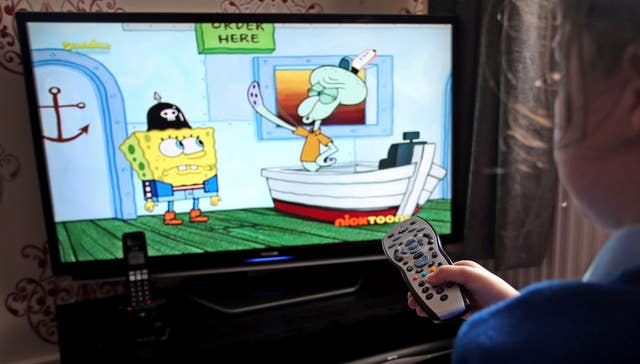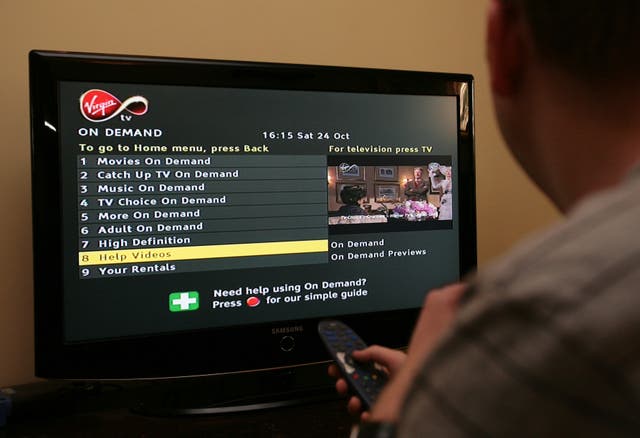Britons prefer to stay at home, tune in and “switch off” with their favourite TV shows than go out, a survey suggests.
Mental health experts have said TV and series obsessions are not surprising, and offer an escape from the “bewildering” confusion of modern life.
According to YouGov research, a night spent on the sofa watching TV is more appealing to UK audiences than seeing friends or going on a date.
Watching TV is a particular favourite for the middle-class, middle-aged and married. Women are also more likely to choose an evening on the sofa to a night on the town.
These passive ambitions for the end of a working week may be triggered by modern working and relationship trends, according to mental health experts.
The survey, conducted on behalf of Virgin Media, has shown that 79% of people would prefer screen time to going out, and 69% would choose watching TV over socialising and other activities.
Going for a walk, playing sport and going clubbing are less appealing to the British public than a night of viewing.
The ideal evening, according to responses, would involve comfortable clothes, a Chinese takeaway and drama programmes. Men preferred to have a beer at hand, women focused on the comfort of their clothes when settling down in front of the screen, and both wanted to watch with their partners.
The Mental Health Foundation said that TV has become a means for people to find time and space to disconnect from the stresses of modern life.

A spokesman for the charity said: “Our work is about preventing mental health problems, by helping understand the things that affect mental health so we can build our mental fitness and manage any risks.
“It’s pretty clear to us that modern life can be bewildering – the demands of our work time, increasing commutes for many and the range of relationships and connections we have or don’t have. It’s not a surprise that many people in this survey said they’d rather stay home than go out.
“Many of us now find space to ‘switch off’ and lose ourselves in our latest TV obsession.”

Of those surveyed, 68% said they looked forward to TV time as a way to relax after a long week, with 66% of men and 73% of women saying they would rather do this than go out for dinner, a date or out with friends.
The research shows that 62% of respondents stayed in every Saturday night, and three hours is the most common length for a “marathon” of non-stop viewing.
A night in was marginally preferred by the middle-class, and 81% of those married or in a civil partnership would rather a night on the sofa than on the tiles – higher than other relationship statuses.
Viewing went down the more children were in a household, with single-child families watching more than others.
Young people were the least likely to prefer time in front of the TV to other activities.
The Mental Health Foundation spokesman said: ”We often think of young people as screen-obsessed but it is interesting to see here that meeting up with friends still beat a night in front of the TV for people aged 18 to 24.”
The comforts of onesies, football shirts, beer and Chinese takeaway were all cited by respondents as favoured accompaniments to viewing.
David Bouchier, of Virgin Media, said, “Brits are a nation of TV-lovers and it’s easy to see why when 2018 delivered so many unmissable TV moments.
“Gone are the days of going ‘out-out’, people now want to make the most of a night in front of the TV.”
Marginally, the south of England (83%) preferred a night in to the North (79%). Wales (80%) was slightly more in favour of TV over a night out than Scotland and England (79%)
